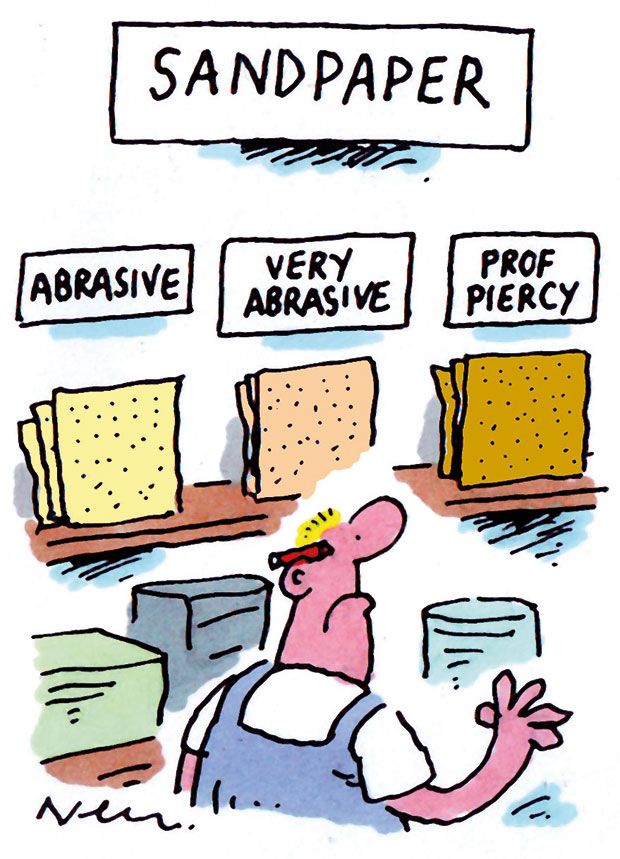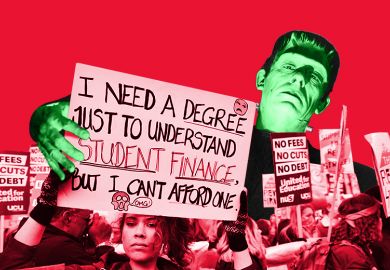
Nigel Piercy, the controversial dean of Swansea University’s School of Management, has resigned. Professor Piercy, who was recruited in 2013, clashed repeatedly with staff and students over his allegedly high-handed and abrasive management style. Last year he warned staff that the school was “not a rest home for refugees from the 1960s…Live with it.” In May, the chair of Swansea University’s council, Sir Roger Jones, apologised to university staff for “puerile” remarks about trade unionists by Professor Piercy, who had described them on his blog as “unpleasant and grubby little people”. Sir Roger told the BBC that “byzantine” rules explained why there had been delays in dealing with concerns. Professor Piercy blamed his departure on “differences with the university regarding implementation of the school’s future strategy”. The university refused to comment on a report by the BBC that Professor Piercy’s son, Niall, who was also recruited in 2013, has also been suspended as pro-dean of the school.
An algorithm developed by The Open University is “able to predict a student’s final grade within just a week of their starting their course”. Now “at least two Russell Group universities” are considering how they can adapt the technology, which looks at factors including how enthusiastically students participate in online learning forums to improve their results, the Financial Times reported on 27 July. Meanwhile in the US, Dartmouth College tutors have “trialled an app on students’ phones that measures how long they spend sleeping, studying, partying and exercising”. How about that as a metric for the teaching excellence framework? If graduate earnings are used as a measure of teaching quality, then a metric on student sleeping habits merits consideration too.
Peter Wadhams, professor of ocean physics at the University of Cambridge, recently took a call from a reporter asking about a study that “contradicted his prediction that Arctic ice was melting so fast that it could all disappear this summer”. He first responded that there was still an outside possibility of the Arctic being ice-free this year, The Times reported on 25 July. Then – and some will see this as a less orthodox response – he suggested that assassins may have murdered three scientists who were seeking to reveal how rapidly global warming was melting Arctic ice, and that he himself had been targeted by a lorry driver who tried to run him off the M25. “I do believe assassins possibly murdered them, but I can see that I would be thought of as a loony for believing this,” he told The Daily Telegraph. Fiona Strawbridge, a University College London academic and partner of one of those who died, Seymour Laxon, formerly of UCL himself, said the deaths were tragedies and “it’s really not helped by these ludicrous theories”.
Universities UK launched its campaign on the benefits of European Union membership on 27 July, with an event featuring speeches from Labour’s shadow business secretary Chuka Umunna, pro-European Conservative MP Damian Green and UUK president-elect Dame Julia Goodfellow. Michael Crick, the Channel 4 News political correspondent, asked the panel whether there was “something rather bogus” and “un-academic” about the event in its failure to reflect any Eurosceptic voice, suggesting that UUK should not be “running a campaign meeting”. But given the coverage UUK secured – an interview spot on BBC Radio 4’s Today programme, the front page of The Independent and coverage in nearly all the broadsheets – the lobbying organisation will probably settle for being “un-academic”.
And UUK will not be too worried if the main critique of the Universities for Europe campaign comes from Ukip, which flailed around but struggled to land a punch this week. In response to the campaign the party put out a press release - that failed to gain much coverage - decrying the presence of EU-funded Jean Monnet professorships in UK universities and claiming it amounted to “paid-for propaganda”. Paul Nuttall, deputy leader of Ukip, said he had written to the BBC “warning them against using Monnet professors as supposed impartial speakers on the EU”, adding it was “only right that the British public are made aware of this grotesque undermining of the UK further education system”. Mr Nuttall, a former Liverpool Hope University lecturer, should really tell us more about how UUK’s activities in higher education have undermined further education.
Register to continue
Why register?
- Registration is free and only takes a moment
- Once registered, you can read 3 articles a month
- Sign up for our newsletter
Subscribe
Or subscribe for unlimited access to:
- Unlimited access to news, views, insights & reviews
- Digital editions
- Digital access to THE’s university and college rankings analysis
Already registered or a current subscriber?



